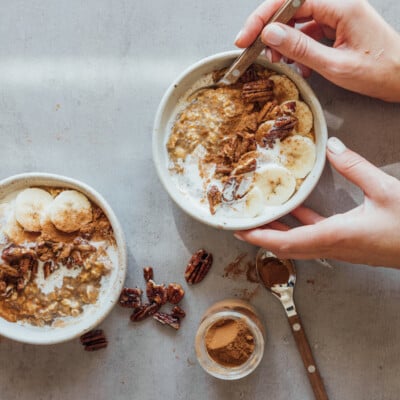ed note: The views expressed in this article intend to share information and induce conversation, in an effort to empower women to be proactive in their health if and when they try to conceive. As always when it comes to matters of health, we encourage you to do your research, listen to your mind and gut, and talk with your doctor so that you can create a plan that’s optimal for you. And of course – if you’ve been pregnant in the past and didn’t necessarily follow this advice — well, that makes two of us, and you are just fine.
Lauren Zielinski CNM, MSN, RN is a Certified Nurse-Midwife, and the founder of a grassroots women’s health movement called New Moon Rising Events. New Moon Rising works in cities across the US to hold free, day-long workshops that foster discussion about reproductive health, political advocacy, natural medicine options, and community connections.
Whether you’re thinking about trying for a babe soon, are currently trying, or just want to live as cleanly as possible, there are a few simple evidence-based changes you can make to de-pollute your bod day-to-day. Keep in mind though – fertility is complicated and there’s never a simple one-fix answer, but I truly believe little pieces make up the big picture of maximizing your overall health and wellbeing. As a woman, it’s especially important to pay attention to your exposure to and ingestion of environmental toxins, certain plastics, pesticides and chemicals when you’re trying to conceive or are pregnant. Research has proven that avoidance of pesticides and certain chemicals can increase rates of fertility and lower rates of cardiovascular diseases, immune system illness and cancer. Yas!

photo from reading my tea leaves
What does the Research Say?
Lets talk about the dirty stuff. Chemicals! Toxins! Pesticides! What is the actual deal with organic fruits, veggies and animal products? I’d argue its time to pay attention and quit rolling your eyes at the organic and natural sections of your local shops and grocery stores (or was that just me?) Current research shows that women who eat organic fruits and vegetables with less toxic pesticides have higher rates of pregnancy success and lower rates of miscarriage. We also have research that links eliminating chemicals such as Phthalates, PFC’s, BPA’s, Glycol Ethers and Dioxin (whoa, mouthful) to healthier and more fertile reproductive systems in men and women. Who doesn’t love a happy little sperm and egg?

So, what does this mean for me?
Knowledge is power! It’s easy to ignore exposure to chemicals because we don’t feel or notice any changes in our day-to-day life from exposure, but research shows that if we keep our exposure levels down it can be easier to conceive and maintain a pregnancy. I recommend researching more deeply into how these different common toxins affect your health – but here’s my quick and dirty (err clean?) cheat sheet on decreasing exposure to environmental toxins.
Boy, Bye
1. De-Plasticize your life….as much as possible! Say no to cheap plastic: use glass or metal food storage containers and water bottles instead of plastic ones, and chunk the saran wrap.
2. Drink filtered water. There are very real amounts of sex hormones from dumped and bio-processed pharmaceuticals finding their way into our public water source as well as run off from farms in the forms of pesticides and nitrates.
3. Dump the chemical household cleaners and use simple, natural antibacterial products to clean, like white vinegar + water, or lavender and lemon oil + with water in a glass spray bottle.
4. Use plant based and fragrance free laundry detergent and find a “green” dry cleaner. Your clothes touch your skin all day – your skin is the most exposed and absorptive organ in your body!
5. Avoid Perfumes and Personal Care products with ingredients that say “fragrance or parfum” (those are code words for chemicals like Phthalates)
6. Use cast iron cookware and pots and pans WITHOUT non-stick coating to avoid ingesting non-stick chemicals.
7. Avoid hair, face, nail and body products with Parabens or Phthalates listed in the ingredients.
8. Shop for organic dairy and meat products and trim off the fat from your meat. Dioxins are chemical byproducts that through water and feed supply build up in unsafe levels in animal fat.
9. Shop the following fruits and veggies organically. These listed softer fruits and veggies soak up pesticides and chemicals when grown non-organically and aren’t easy to wash off:
- Strawberries
- Spinach
- Nectarines
- Apples
- Peaches
- Pears
- Cherries
- Grapes
- Celery
- Tomatoes
- Sweet Bell Peppers
- Potatoes

Lastly, here are a few resources with more helpful information about chemicals and fertility.




